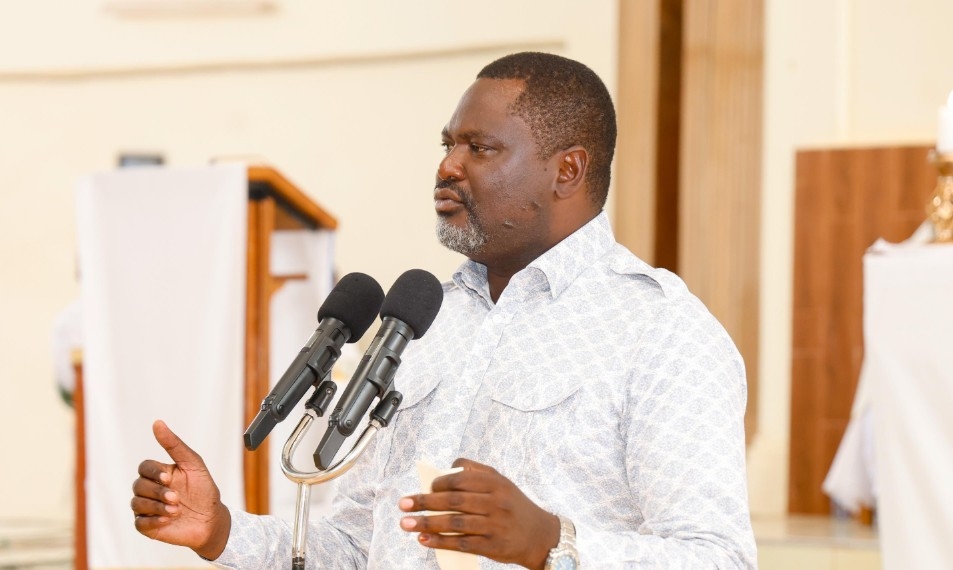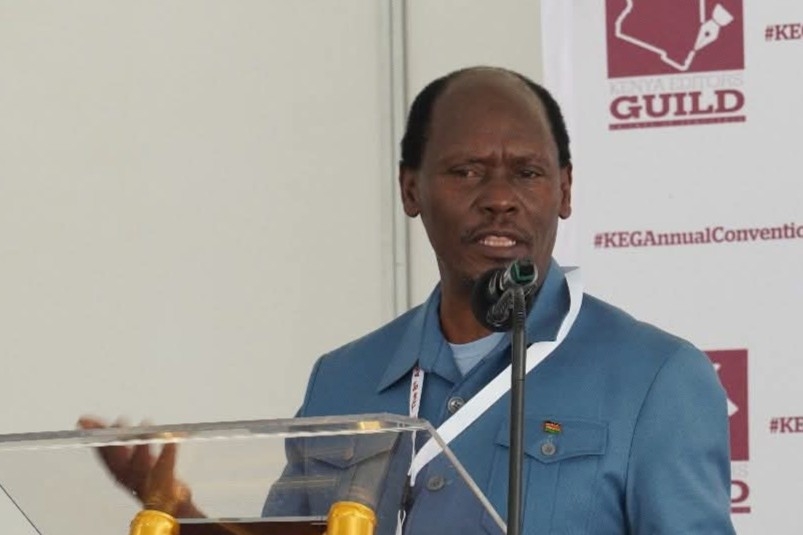Potato farmers in Narok and Nyandarua have come together to form cooperative societies to secure better market opportunities and ensure easy access to high-quality certified Irish potato seeds.
The farmers hope to improve their profitability and enhance the overall quality of their potato production.
Joseph Ngugi, a farmer and member of the Lanyuak Farmers Cooperative Society Limited in Narok North, said the cooperative society was started to help them access the market for Irish potatoes. The move, he said, has also shielded them from exploitation by brokers and middlemen.
“We came together as 20 farmers with the aim of seeking a solution to some of the challenges potato farmers in the area were facing,” he said.
The cooperative was started in 2013.
Ngugi said they sought support in training from organisations such as the National Potato Council of Kenya, Kenya Agricultural and Livestock Research Organization and Narok government.
Besides the training, he said they also benefited from exchange visits to other potato farmers in Eldoret, Nakuru and Nyeri.
They also attended a potato exhibition and expo at the KALRO headquarters in Nairobi.
With the training and knowledge, they started growing potato seedlings with technical support and training from the Kenya Plant Health Inspectorate Services.
“For the first season, we started on half an acre and planted the Shangi potato variety. In the second planting season, we planted the Kenya Mpya variety, which we received from the Narok county government,” he said.
The group continued to expand the acreage under potato farming and also increased the membership to the current number of more than 1,200.
The cooperative has farmers from 56 different groups from Narok North, Narok South, Narok West and parts of Trans Mara.
“Members get to benefit from quality potato seedlings which have been certified by the Kenya Plant Health Inspectorate Services at affordable prices. A 50kg bag of Irish potato seedlings sells at between Sh2,750 and Sh3,750, but members of the cooperative society buy it at Sh500 less,” Ngugi said.
In a good season, he said, one can harvest 70-150 (50kg) bags from one acre using certified seeds.
A bag of Irish potatoes in the market sells at an average price of Sh2,000 to Sh4,000, depending on the season.
“I have been able to double my yields through the use of clean certified seedlings. We are also assured of a ready market since we aggregate our produce as a group, which guarantees good prices,” he said.
According to Ngugi, the quality of the potatoes being sold in the market is low due to the heavy rains that the country experienced during the long rains.
Beth Wangari, a potato farmer in Dundori Nyandarua county, and member of the Green Silver Cooperative, said the cost of production is a challenge to many.
She attributed this to the high cost of fertiliser, certified potato seedlings and labour.
But the burden is less because farmers get to access loans through the cooperative.
“Thanks to the cooperative society, I am able to get a loan to buy certified seeds, fertiliser and pesticides,” she said.
Wangari added that the cooperative also looks for a market for their produce and farmers are able to get good prices for their produce without being exploited by the middlemen as has been the norm.
She, however, said that changing weather patterns are a major challenge in potato farming.
David Kimotho, chairman of Green Silver Cooperative, which was started in 2016 and was then known as Good Time Self Help Group, said it started with 56 members who have since increased to 500 members.
“We started by producing potatoes and looking for a good market collectively. We have since started doing contract farming for different potato varieties depending on the market preference,” he said.
Kimotho added that accessing quality and affordable fertiliser is also becoming a challenge.
“Even though the government has been selling subsidised fertiliser, not all farmers can access it due to the long distances from the farmers to the distribution areas,” he said.
“This makes the cost of production high. Sometimes farmers are not able to get even, especially when the prices are low due to a glut in the market.”
Kimotho called for support in getting a good market for their produce.
Director of the Institute of Cooperative Development at the Cooperative University of Kenya, Prof Wycliffe Oboka, said they are mandated to contribute to cooperative development in the country.
He said that they are linking cooperatives with markets through the Kenya Rural Transformation Centres Digital Platform project.
The three-year project is financially supported by the African Development Bank through the Fund for African Private Sector Assistance.
“The digital platform will bring various actors along the value chain onto one platform. This entails various players who supply agricultural cooperatives, including financiers, inputs and farm machinery suppliers, as well as market linkage,” he said.
He added that the project aims to put farmers at the centre of a single electronic ecosystem and connect them with all actors along the agricultural sector's value chain.
Oboka said that farmers and cooperatives may not be aware of who may need their products and pay them better.
“This platform is going to afford them that advantage. They will be able to know who is able to supply them the inputs, at what prices, different services and where the services are being offered. They will also be able to scan the environment and know who can provide them the best markets and where the markets are,” he added.
The pilot project is being implemented in four counties: Nakuru, Narok, Nyandarua and Baringo, with a focus on the dairy, maize and Irish potatoes value chains.
Prof Ken Waweru, director of Research and Innovation at CUK, said they are collaborating with the national and county governments in the areas where the project is being implemented.
He said that the goal is to create a digital platform to integrate agricultural players in the three value chains.
“Our aim is to help eliminate the bottlenecks that exist, especially as it relates to the middlemen. We believe that once we do that, we will enhance farmers' incomes by just eliminating the middlemen that exist in the three value chains.”
The project is funded by the African Development Bank with at a cost of Sh105.4 million
Waweru said the project has been incorporated into the government’s Bottom-up Economic Transformation Agenda, which has prioritised certain value chains like maize, dairy and potato.
He added that the project is targeting more than 100,000 farmers, but the impact will be substantial once they reach them directly and the value chains that support them.
The project was officially launched in May last year and will end in March 2025.








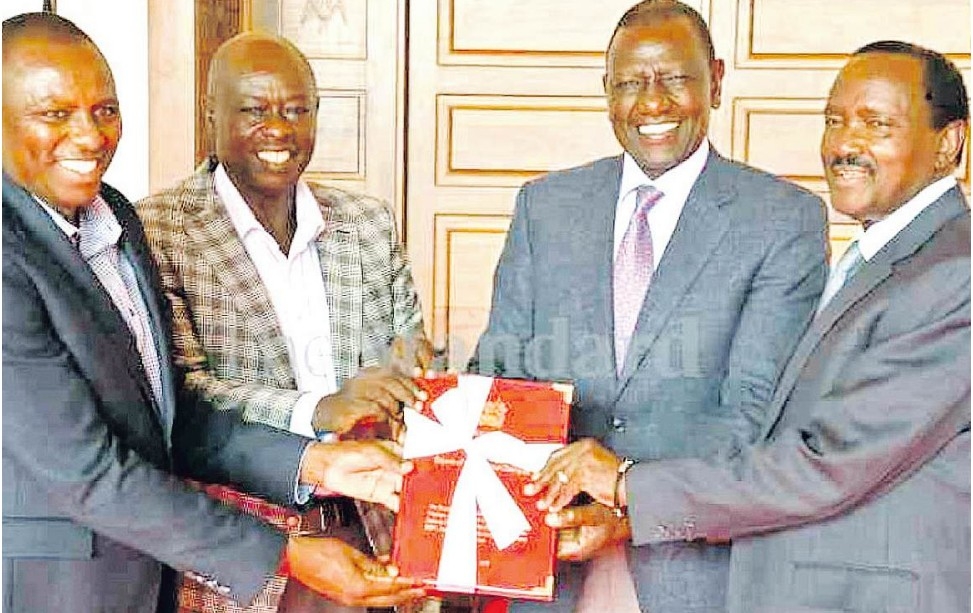
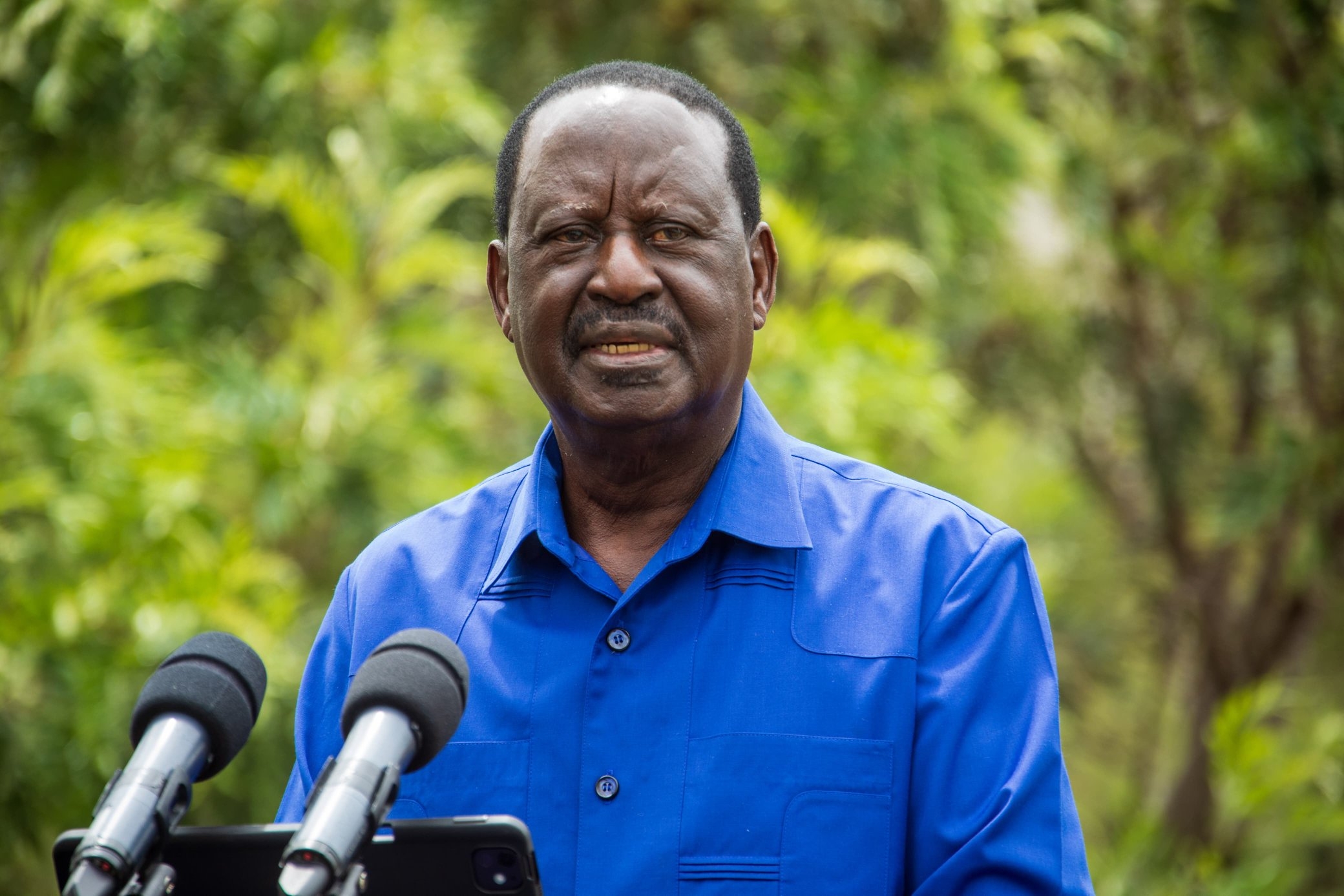
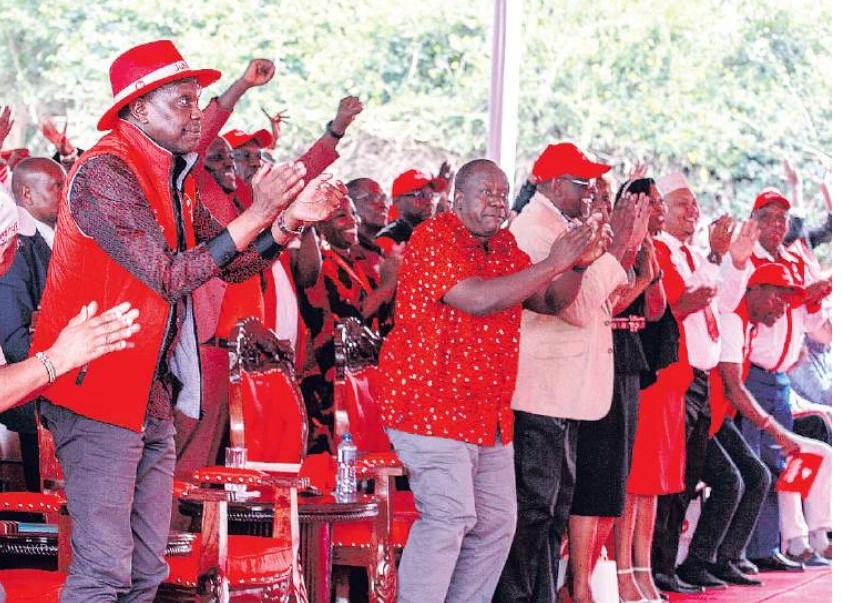

![[PHOTOS] Ruto present as NIS boss Noordin Haji's son weds](/_next/image?url=https%3A%2F%2Fcdn.radioafrica.digital%2Fimage%2F2025%2F11%2Ff8833a6a-7b6b-4e15-b378-8624f16917f0.jpg&w=3840&q=100)


